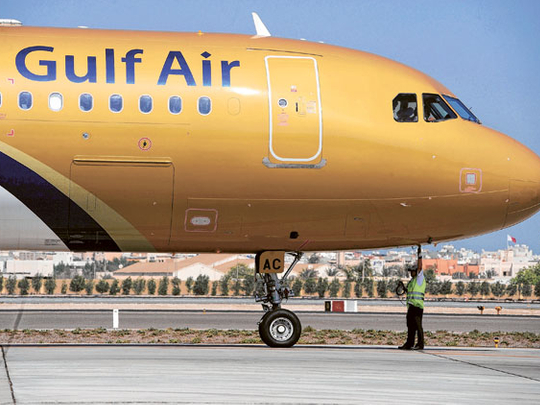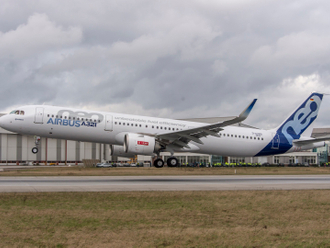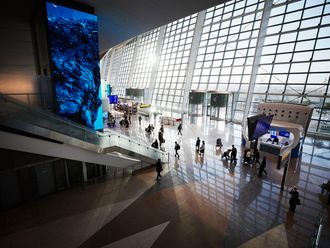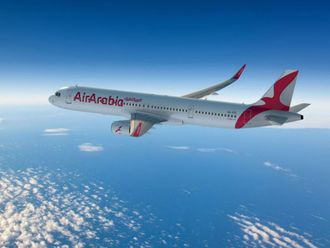
Manama: A Bahraini parliamentary ad-hoc committee will look into the state of Gulf Air, the national carrier, following a sharp drop in passenger numbers.
Parliament sources said that the committee will study the company's performance and plans in the context of regional and international developments.
The decision to form the committee was taken following a meeting between representatives of the government and lawmakers on the airline.
The government presented four options that included maintaining the status-quo with annual losses of up to 200 million Bahraini dinars (Dh1.94 billion), shutting down the company and dismissing its 1,800 Bahraini staff, bringing in new local and foreign investors or downsizing the company by ringing in a new structure.
The company is now headed by Samer Majali, a prominent figure in the aviation sector who had pledged to make the airline profitable through an aggressive policy that favoured a regional network and attractive connectivity options for overseas travellers.
"The real issue is not who is in the cockpit, but the options available," a Gulf Air insider told Gulf News. "You cannot expect the company to soar if its wings are clipped by suspending highly profitable routes."
Turnaround strategy
In an interview with Gulf News, Majali who took over his position with Gulf Air in 2009, said that he had set out a three-phased turnaround plan for the company.
The three-year strategy included a more focused international network in phase one, higher standard of services and developing the fleet and route network in a focused manner in phase two, and a fleet optimisation to support a new approach to flight schedule and route network in phase three.
However, he said that unexpected dramatic events in Bahrain and in the region have delayed the break-even plans by months.
Unexpected factors
"First, there was some reluctance by passengers to fly to the region, especially from Western countries whose authorities put restrictions on their citizens to travel here. In some cases, some countries even wanted to take their nationals from Bahrain," he said.
"Second, and again for security reasons, the use of the King Fahd Causeway between Bahrain and Saudi Arabia was restricted. This of course limited the number of passengers who would use Bahrain airport and our company.
"A third reason is that the government — and again for security reasons — suspended flights to Iraq, Iran, and Lebanon. Flights to Beirut were resumed in June, but until now we have not received the approval to fly again to Iraq or Iran," he said.
However, Majali insisted that the delay should not be perceived as a fatal blow to the much anticipated turnaround.
Downsizing favoured
The government is keen to downsize Gulf Air's operations as recommended by a consultancy group, sources said. The move would require between 180 million dinars (Dh1.75 billion) to 250 million dinars.
Under the downsizing option, 15 non-profitable routes are to be eliminated and staff laid off. However, the sources told Al Ayam daily that Bahraini nationals would not be affected.
The option, if endorsed by the parliament, will be implemented within weeks. The lower chamber has been pushing hard to make the airline leaner and twice called for appointment of new leaders.











